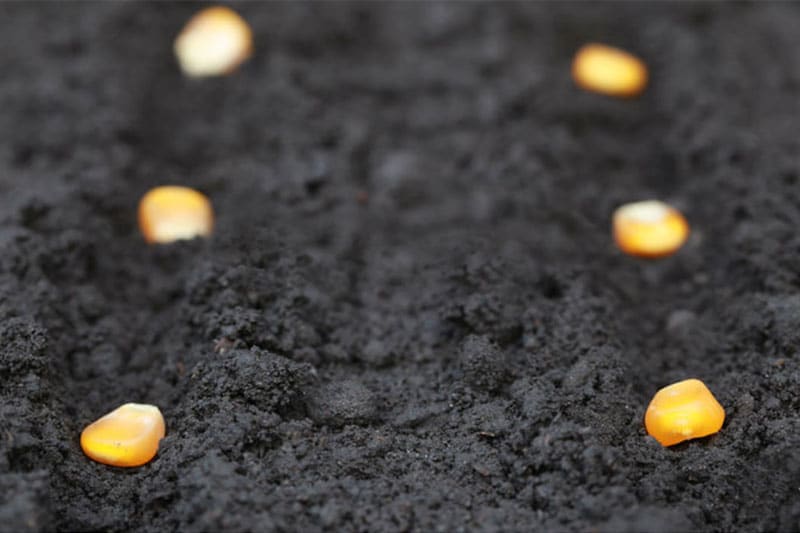Ghana has joined the list of countries with specific laws protecting the right of plant breeders — a move that is expected to spur scientific innovation and support food security in the West African nation.
“It will have a great impact on Ghana’s agriculture,” predicted Dr. Akoto Owusu Afriyie, Minister for Food and Agriculture, after the legislature adopted the Plant Variety Protection Bill in late 2020.
“The bill is meant to protect the rights of breeders in Ghana,” he explained. “Our breeders in the universities and research institutions, they have done so well. They produce so many types of new varieties — high-yielding, disease-resistant, drought-resistant — but they are not recognized. If I write a book today, I can rely on my rights to my book and even when I die, whoever succeeds me could continue to benefit. But the breeders create this new variety, and they don’t get anything from it. Elsewhere, their rights are protected. So, the bill is meant to protect the right of the breeder. And it will encourage scientists to put in their maximum and they will get paid for the work that they do.”
The bill will allow those scientists and research institutions that develop improved seeds to earn royalties on their new varieties. Ben Abdallah, chairman of Parliament’s Constitutional and Legal Affairs Committee, told his colleagues that the bill seeks to fill the existing gap in Ghana’s intellectual property laws, protect the legitimate rights of plant breeders and incentivize them to deliver quality seeds to boost ongoing agricultural initiatives. Lawmakers also hope it will also help attract foreign investment in the sector.
“This is expected to lead to the development of disease-resistant, drought-resistant and high-yielding varieties to support the country’s agriculture. This system would also deliver value to our hardworking farmers and propel the socio-economic development of the country,” Abdallah explained.
He said bill ensures Ghana compliance with the 1961 International Convention for the Protection of New Varieties of Plants, to which Ghana is a signatory. The approval also conforms with the World Trade Organization’s Agreement on Trade and Related Aspects of Intellectual Property Rights (TRIPS).
In Africa, about 10 countries, including Kenya, Morocco, South Africa and Tanzania, have passed various versions of legislations aimed at protecting plant breeders. This has accelerated the introduction of new plant varieties in some of those countries.
South Africa, a leader in Africa’s seed market, has had a Plant Breeders’ Rights law since 1976 and the industry has benefitted greatly from it. That country releases more improved seeds for use by farmers every year than Ghana. For example, according to the September 2018 edition of the Africa Seed Access Index, South Africa released 363 varieties of four of the country’s major crops over the preceding three years while Ghana released only 17. Currently, fewer than 10 percent of Ghana’s farmers use improved seeds. Instead, the majority rely on traditional varieties that do not yield much, resulting in low productivity on many farms. The country is also heavily dependent on imported seeds from Europe and other African countries.
Attorney General and Minister of Justice Gloria Akufo explained in a memorandum to parliament that the law seeks to promote the breeding of new plant varieties aimed at improving the quality and quantity of food and raw materials for industry at a time when the global food situation is precarious and uncertain.
The protection for new plant varieties will boost investment in plant breeding, which requires long term funding sources that entrepreneurs often cannot access in the absence of protections, Akufo said. The law also will promote the development of new varieties adapted to Ghana’s local environment and specific needs, she added, and increase agricultural productivity in the face of scarcity of arable land and other resources.
In view of the potential for productivity in Ghana, providing farmers with better seeds will result in increased yields from the same amount of land, thereby enhancing economic development, Akufo said. Food security can be improved by breeding and distributing seeds of high yielding varieties that are not only adaptable to Ghana’s environment, but have good taste and nutritional qualities, the memorandum stated.
Long history
The Plant Variety Protection Bill was first introduced about six years ago as the Plant Breeders’ Bill but shelved following opposition by some civil society groups. In 2015, more than 200 scientists from the Council for Scientific and Industrial Research, West Africa Centre for Crop Improvement (WACCI) and various universities in the country petitioned parliament to speedily pass the bill. Their petition noted: “This bill is an important measure to combat poverty in our country. Our farmers desperately need access to improved varieties of our staple crops. This is essential if we are to continue to modernize agriculture.”
Prof. Eric Yirenkyi Danquah, director of WACCI, observed: “Passage of the Ghana Plant Breeders’ Bill will encourage investments for the development of superior varieties of staple crops urgently needed in farmers’ fields to spark a green revolution in the country.”
Kwasi Etu-Bondie, a member of parliament’s Food, Agriculture and Cocoa Committee and MP for Kintampo North, cited maize and palm oil as examples of two main crops that could have been generating significant revenue for Ghana, but haven’t in the absence of a plant breeders’ protection bill.
“Obantapa is the only maize variety with the highest protein in the world. And this maize is being grown in the whole of West Africa. Ghana invested in the scientists at Crop Research Institute to produce it. But everyone is taking it free without paying a dividend to Ghana. That is what we are saying that we have to protect,” he explained in an interview with the Alliance for Science.
“Everyone knows oil palm was bred in West Africa. And now we know oil palm is making good money for Malaysia, which took the seed from Ghana. If we have this bill, Malaysia will be paying something to Ghana,” he added.
Reviving old wars
After many years on the table, it appears the desire to increase investment in agriculture gave the current government the political will to pass the bill into law, despite continuing opposition. Food Sovereignty Platform, a civil society group, told a media briefing in Accra that the bill undermines Ghana’s sovereignty and biodiversity. The group said the bill will weaken the country’s agricultural sector as it “violates the Ghanaian value seed system” that sees a lot of seed sharing among farmers.
“The bill is designed to strengthen the largest global seed companies and will put the Ghanaian seed farmer at a disadvantage,” Edwin Kweku Andoh Baffour of the Food Sovereignty Platform, claimed.
But the scientific community and government disagree. “Because the demand for seeds is going up so drastically, we are encouraging entrepreneurs, breeders to come together to produce seeds for us. And these are being done by local scientists. It has nothing to do with multinationals… that is the kind of propaganda that goes out to scare people,” the Minister for Food and Agriculture told the media.
The Attorney General in her memo to parliament also dismissed claims that the bill will prohibit farmers from sharing seeds. “The plant breeders’ rights system permits the farmer to save and replant seed and provides them with the right to use protected varieties as a source of further research and breeding activities,” she explained.
‘Cautiously optimistic’
“Scientists can be happy that now when they work, their sweat will not be in vain,” Dr. Richard Ampadu Ameyaw, a researcher at the Council for Scientific and Industrial Research, told the Alliance for Science. He said the law will encourage scientists to work harder. “The little returns you will get in terms of royalties will come back to support seed development and give a plus to the nation,” he added.
Dr. Maxwell Asante Darko, a plant breeder at the state-run Crop Research Institute, agrees that the new law will enhance the work of plant breeders. “It all bored down to funding. Once there is money coming in, you are able to solve the issues with yield, climate change, pests, drought and all the things associated with production. And be able to meet the quality needs of consumers. Without funding, it is impossible to meet the needs of farmers and consumers.”
However, he noted, the law will not make a difference until it is vigorously implemented.
“It is a very, very important thing that has happened, but I am cautiously optimistic because in Ghana, it’s not always about the law but whether the law will be applied well,” Darko explained. “So, though I am happy that the law recognizes our work and [we will] possibly get some funding to plow back into our breeding program, I am cautiously optimistic because it is the implementation of it that matters.”
This article was first published by the Cornell Alliance for Science.






